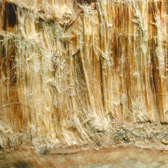ASBESTOS TESTING
Jul 4, 2017
Determination of asbestos in building materials and in air
ALS laboratories in Europe invested in a modern electronic microscope and extended their portfolio of analysis for air quality, work environment, building and other waste materials compliance.
We expand the asbestos-related services we have been providing for over nine years by investing in a scanning electron microscope (SEM) equipped with an energy dispersive X-Ray spectroscopy (EDS).
Asbestos was till now determined by optical microscopy. Its determination will be now supported and completed by this new technique of electron microscopy.
Scanning electron microscope for asbestos determination
When the material contains very low amount of asbestos, which may be below the resolution of optical microscopy, scanning electron microscopy (SEM) is able to detect it due to the increased magnification.
For detection of airborne asbestos fibres, which often are thinner than fibres from material samples, higher magnification is needed than can be achieved with light microscopy. Our electronic microscope allows determining asbestos in the air. Current legislation stipulates a limit of 1000 mineral and asbestos fibres per m3. The development of new techniques leads to increase pressure to distinguish asbestos from the other fibres. Optical microscopy is not able to reliably distinguish between them, whereas SEM coupled to EDS detector allows to identify fibres through their elemental composition and determine their number in the air.
For more information about ALS capabilities on asbestos, please consult our dedicated asbestos web pages at http://www.testing-asbestos.com/
Scanning electron microscope for determination of the composition of substances
Since this type of electron microscope is suitable for observing and analyzing material surfaces, it is possible to determine semi-quantitatively the elementary composition of the observed sample or particle with the EDS detector. This procedure is very useful to estimate the composition of unknown spots on the surface of pipes, equipment, heat exchanger surfaces, etc. or to determine the composition of insoluble materials, even in very small quantities. Do not hesitate to contact us with your requirements.
If you have an asbestos or other laboratory analysis request, feel free to contact us at 226 226 228 or email us at customer.support@alsglobal.com.

